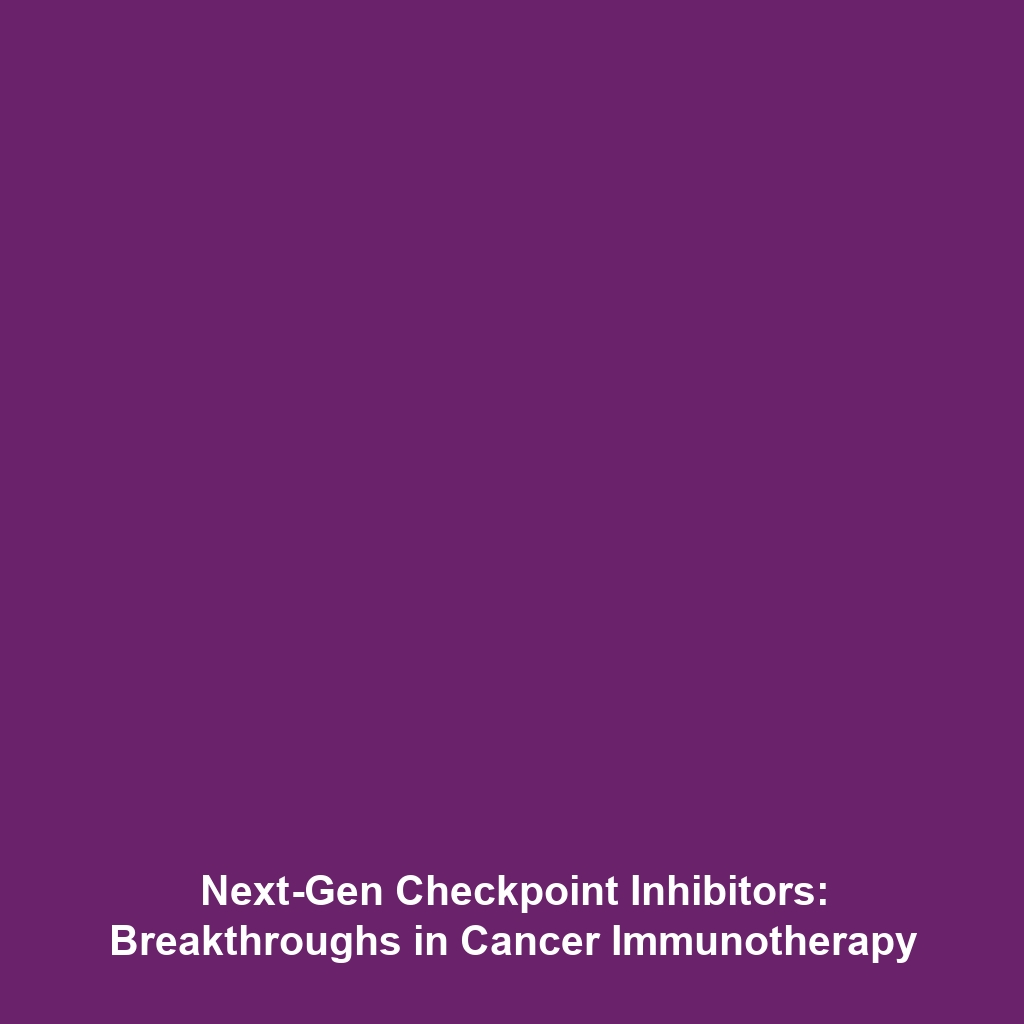Immune Checkpoint Blockade: How Blocking Immune Checkpoints Helps T Cells Attack Cancer
Introduction
Immune checkpoint blockade (ICB) represents a groundbreaking advancement in the field of immunotherapy and cancer treatment. This innovative approach involves the inhibition of regulatory pathways that prevent T cells from effectively targeting and destroying cancer cells. By blocking these checkpoints, ICB rejuvenates the T cell response, allowing for a more robust attack against tumors. Understanding how blocking immune checkpoints aids T cells not only enhances our grasp of cancer biology but also highlights the transformative potential of immunotherapy in improving patient outcomes.
Key Concepts
The Mechanism of Immune Checkpoint Blockade
The primary function of immune checkpoints is to maintain self-tolerance and prevent autoimmunity. In cancer, however, these checkpoints can be exploited by tumor cells to evade immune detection. Key players in this process include:
- PD-1 and PD-L1: Interactions between PD-1 on T cells and PD-L1 on tumor cells inhibit T cell activation.
- CTLA-4: CTLA-4 competes with CD28 for binding to CD80/CD86, reducing T cell stimulation.
Integration with Other Immunotherapy Strategies
Immune checkpoint blockade is often used in combination with other therapies such as CAR T-cell therapy and targeted therapies, amplifying the overall therapeutic effect and enhancing survival rates in patients with various forms of cancer.
Applications and Real-World Uses
The application of immune checkpoint blockade has revolutionized treatment protocols across several cancer types. Notable uses include:
- Melanoma: Drugs like pembrolizumab and nivolumab have shown significant efficacy.
- Non-Small Cell Lung Cancer (NSCLC): ICB therapies have been integrated into first-line treatment regimens.
- Renal Cell Carcinoma: Combination therapies with ICB exhibit favorable outcomes.
Current Challenges
Despite its success, immune checkpoint blockade faces several challenges, including:
- Variability in patient response and identification of biomarkers for effective treatment.
- Immune-related adverse events that can lead to significant morbidity.
- Cost and accessibility of novel therapies, limiting widespread usage.
These challenges necessitate ongoing research to optimize the use of ICB in clinical practice.
Future Research and Innovations
The future of immune checkpoint blockade appears promising with emerging research focused on:
- Biomarker discovery: Identifying predictive markers to select appropriate candidates for therapy.
- Next-generation therapies: Developing anti-CTLA-4 and combination therapies targeting multiple checkpoints.
- Personalized medicine: Tailoring treatment approaches based on individual tumor profiles.
These innovations have the potential to enhance the effectiveness of ICB, leading to improved patient outcomes and long-term survival rates.
Conclusion
Immune checkpoint blockade stands at the forefront of cancer immunotherapy, offering new hope for effective treatments against various malignancies. By understanding how blocking immune checkpoints enhances T cell activity, we are better positioned to capitalize on this revolutionary approach. Continued research and clinical innovations are vital for overcoming current challenges and optimizing patient care. For further insights into related immunotherapy advancements, explore our articles on CAR T-cell therapy and targeted cancer therapies.

